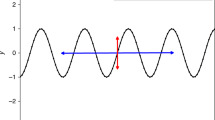Abstract
Normative properties which make social statistics useful as social indicators are illuminated by considering the functions systematic social knowledge has at various levels of social organization and the involvements of actors at these various levels in roles which result in such knowledge. Modes and degrees of generalization which make knowledge useful for action at the lowest levels of social organization (“information”) or for administration at intermediate bureaucratic levels (“intelligence”) are not necessarily applicable to the formation of broad social policy (“policy knowledge”) or for affecting the general conceptions of the social world held by broad public (“enlightenment”). The latter two functions are not always well served by data which have been collected and ordered by systems primarily responsive to the former two functions.
Similar content being viewed by others
References
Biderman, Albert D., 1966. “Social Indicators and Goals,” in Raymond A. Bauer, ed., Social Indicators, pp. 68–153. Cambridge, Mass.: MIT Press.
Biderman, Albert D., 1968. Proposed National Criminal Statistics Center, Hearings. Testimony before the Subcommittee on Census and Statistics, Committee on Post Office and Civil Service, U.S. House of Representatives. 90th Congress, Second Session, March 5–23, pp. 182–227.
Biderman, Albert D., and Albert J. Reiss Jr., 1967. “On exploring the dark figure of crime.” Annals of the American Academy of Political and Social Science, 374 (November), pp. 16–33.
Crawford, Elisabeth T., and Albert D. Biderman, eds., 1969. Social Scientists and International Affairs. New York: Wiley.
Lejins, Peter, 1968. Proposed National Criminal Statistics Center, Hearings. Testimony before the Subcommittee on Census and Statistics, Committee on Post Office and Civil Service, U.S., House of Representatives. 90th Congress, Second Session, March 5–23, pp. 115–123.
MacIver, Robert M., 1937. Society. New York: Farrar & Rinehart.
Ogburn, William F., 1922. Social Change. New York: B. W. Huebsch.
U.S. Department of Justice, Federal Bureau of Investigation, 1963. Crime in the United States-Uniform Crime Reports. Washington, D.C.: U.S. Government Printing Office.
U.S. Department of Health, Education, and Welfare, 1969. Toward a Social Report. Washington, D.C.: U.S. Government Printing Office.
Vico, G. B., 1961. The New Science. New York: Doubleday.
Author information
Authors and Affiliations
Additional information
Portions of this paper were presented at the 65th Annual Meeting of the American Political Science Association, New York City, 6 September 1969 and at a Colloquium on Urban Intelligence Systems at the Center for Urban Studies, Wayne State University, 17 April, 1969.
Rights and permissions
About this article
Cite this article
Biderman, A.D. Information, intelligence, enlightened public policy: Functions and organization of societal feedback. Policy Sci 1, 217–230 (1970). https://doi.org/10.1007/BF00145207
Issue Date:
DOI: https://doi.org/10.1007/BF00145207




